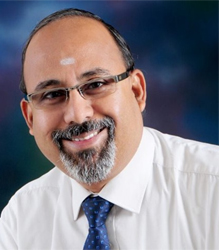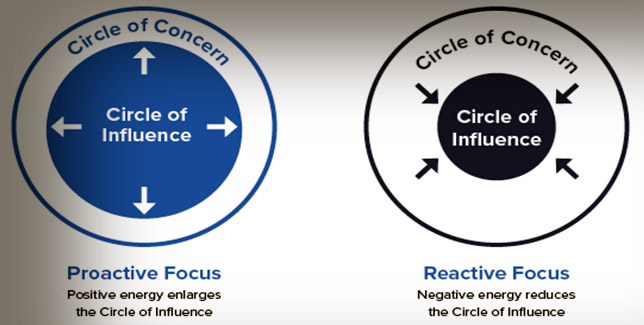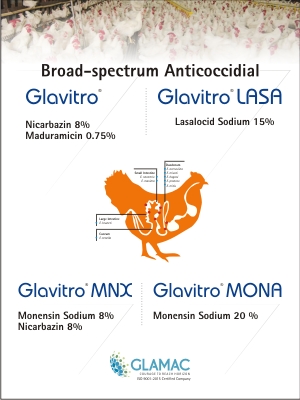Summary: Through apt examples, the author explains how to focus and do what you can in the given situation rather than wasting energy on issues that are totally beyond your control.

Recently I read about Dr Ganesh Rakh who runs a hospital in Pune. What makes him special is that he does not charge for deliveries if a girl child is born. Hard to believe? Indeed it is true. He has been doing this for several years now and the hospital celebrates birth of the girl child by cutting cakes and giving flowers. When asked why, he said “I am a doing my little bit to save the girl child”. Very humble!
What Dr Ganesh has done is described by Stephen Covey as a Proactive focus where a person is focusing on the his circle of influence, on which he has control instead of talking about things in his circle of concern over which he has little or no control. Dr Ganesh too could keep talking about gender bias, child sex ratio and even write letters to the government. But he chose to act and did what he could do. Covey says when someone is focusing on circle of influence, they build a positive energy by taking credible action. They are successful in expanding their circle of influence. On the other hand a person focusing on circle of concern only builds frustration and results in shrinking of his circle of influence. Please refer to the picture here .

How does this apply to us? Do we complain about Covid affecting our business? Customers not willing to give appointments, high product prices and RM prices. What control do we have over these macro issues that affect us? Answer is we have very little influence. Still we keep worrying about it, talking about it. This builds lot of frustration.
What could we do instead? What are the things that are in out control? We could find answers if we ask these questions to ourselves. For instance, do we focus on improving the quality of our calls, understanding the customer needs, doing a thorough pre call before meeting the customer, do we focus on building a ROI of our products, do we train our sales personnel on our CRM, do we track our secondary sales. These are some examples of the issues that are in our control and is just indicative.

When faced with issues related to currency fluctuations, my organization focused on exports to achieve a natural hedging. When entire industry was reeling under the 2008 bird flu crisis, one company decided to use it as an opportunity and built a very strong technical team. Sensing difficulty in finding senior talents from the industry this company focused on grooming internal talents for future roles. These organisations too could have stopped with lamenting or worrying about these issues. But they chose to act.
I would like to give an example from my corporate career.
We were facing severe gross margin issues because of price escalation of a key imported liquid RM because of crude prices and currency fluctuations. This RM was supplied globally only by 3-4 vendors who always quote same prices. This reduces any room for negotiation. Our Sourcing head, Mr Prajit kumar (name changed) started focussing on controlling the ordering cost, transportation, handling of this RM as he saw this could help save a good 5% on landed cost. What he did was, he spoke with a vendor on long term contract and made him agree to build a tank in our premises at his cost. The supplier saw merit in this deal and went ahead to build a tank. Instead of receiving this RM in barrels, now it was sent in a bulk tanker. There was no need to transport the heavy barrels and use hand pumps. It took almost 4 minutes to add this RM into the reactor which now took just a minute (3 minute saving per batch). Further, it freed up lot of space from our warehouse. Another biggest improvement was on wastage, spillage and safety. Because of what he did, the company was able to save 6% on the landed cost of this RM which contributed to about 50% of our total RM purchase in value terms. That is a significant saving without even negotiating about the price. What he did was a very proactive approach that not just helped him save money but also build a very strong relationship with the supplier. Over a period of time, the supplier started treating us differently as he saw a greater value in our business.
You too could become another Ganesh or Prajit if you decide to do what you could in the given situation rather than wasting your energy on issues that are totally beyond your control. This is not just applicable to your work but in personal life as well. Noted author Mike Hernacki says “In order to accomplish something, you must be willing to do whatever it takes to accomplish it”. What do you plan to do?
About the author:
Mr. Pattabiraman Nagarajan is a HR professional, Consultant, trainer and an ICF certified coach. Has managed organization change and aligned HR practices to ensure business growth. He holds master degree in Social work and a PG diploma in Business management from IIM Trichy. He could be reached at npattabiraman@relyonus.in. Website: https://relyonus.in
Title Image Source: shutterstock_653643367
Previous article by Author: What Could We Learn From Afghanistan Incident?







Gm sir, I did that same one as Prajit, in our factory.
Good to know 🙂